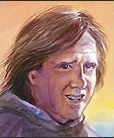Forum
Welcome Guest |
|
|---|---|
 Author Author |
Topic: |
|---|
| Nordor |
|
||||||||
| Gandolorin |
|
||||||||
| tarcolan |
|
||||||||
| Gandolorin |
|
||||||||
| parluggla |
|
||||||||
| tarcolan |
|
||||||||
| Gandolorin |
|
||||||||
| parluggla |
|
||||||||
| Nordor |
|
||||||||
| Gandolorin |
|
||||||||
| tarcolan |
|
||||||||
| Lord_Sauron |
|
||||||||
| parluggla |
|
||||||||
| Gandolorin |
|
||||||||
| tarcolan |
|
||||||||
| parluggla |
|
||||||||
| Gandolorin |
|
||||||||
| PotbellyHairyfoot |
|
||||||||
| PotbellyHairyfoot |
|
||||||||
| Gandolorin |
|
||||||||
| parluggla |
|
||||||||
| Gandolorin |
|
||||||||
| Members Online |









 Lifespans
Lifespans 


